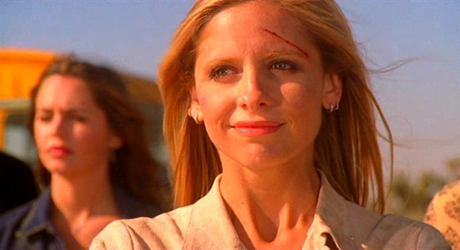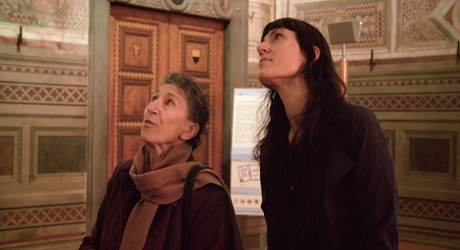
From the very beginning, we at cléo have tried our best to be as transparent as possible about the financial realities of running an independent publication. We started with nothing but a scrappy attitude and a desire to change our industry for the better. In our first year, we were unable to pay writers (or ourselves as editors) and we made it a priority both to be upfront about that, as well as making clear our goal to one day be able to do so. And over the years, with the help of our readers’ generous donations on both PayPal and Patreon, as well as a major grant from the Ontario Arts Council (OAC), we were able to meet that goal. We’ve taken pride in being able to compensate our writers competitively, promptly and efficiently. It’s a goal that has taken a community of artists, writers and readers to accomplish, and we are immensely grateful.
In this spirit of transparency, we have some news to share. In May of this year, we were informed that, due to province-wide budget cuts, our OAC grant programme had been suspended indefinitely. The OAC grant represented a significant portion of our annual budget, and was in large part the reason we’ve been able to grow as much as we have. Efforts to replace that amount of funding would be no small task, and even at our most financially solvent, running cléo was exceptionally hard work. The last thing we wanted was to go back to a point where we could no longer pay writers, or lose our drive and passion and have cléo become a shadow of its former self. So, after much discussion about our various options, we came to a decision: this issue will be our last.
Ending is a disappointing outcome, we know, but given the circumstances, we feel it’s the best possible choice. We are so proud of the readership we grew and that grew with us. Through cléo we met, connected with and worked alongside an incredible community of women around the world: over six years we published 19 issues, featuring 180 articles and a total of 130 pieces by women and non-binary folks. Our newsletter, under the curation of Cathleen Evans, amassed nearly 800 subscribers. Be it online or IRL, hearing that cléo meant something to those who were reading gave us not only joy but often the push to keep forging on. In that spirit, highlighted in bold throughout this final editor’s note we wanted to share some of the answers to the question “How did you hear about us?”, which you provided when you signed up for our newsletter. Thank you.
“Somehow, I think I always knew about cléo.” – a reader in Toronto
Make no mistake, we do not see this ending as a failure of our efforts, and we hope you don’t either. We accomplished exactly what we set out to do: change the make-up of a typical masthead to reflect the depth and breadth of perspectives on film that exist in the world. To quote the very first editor’s note penned by our founding editor Kiva Reardon, “the aim of cléo is not to define feminism or feminist films, but rather treat the ever-increasingly disparaged term as a powerful and organic concept; a movement that can provide rich critical fodder.”
We started cléo at a time when “feminist film writer” was a pejorative term that at best pigeonholed you into only being given opportunities to write about “women’s films” (whatever that means), and at worst afforded no opportunities at all. There’s still significant work to be done on this front, but the sea did change. We’re proud to have been a part of a growing and diverse community of feminist publications, including SVLLYwood, Another Gaze, CherryPicks, GUTS Magazine, Feral Feminisms, Rookie, Joan’s Digest, Shameless, Filmme Fatales Zine, Bitch Flicks, Dispatch FMI, Graveyard Shift Sisters, MAI Journal and Fireflies.
“Kiva Reardon told me about [cléo] in a ride from hotel to film festival in El Gouna, Egypt.” – a reader in Abu Dhabi
The end of cléo speaks to a failure of our industry. Film and culture writing has become beholden to a craven economy that makes it all but impossible to hold down staff positions or live comfortably as a freelancer. We did our best to choose quality of work over quantity of clicks. We paid the price for that decision, and we’d gladly pay it again. Support good work, and the writers who produce it. Support media unions and research what’s at stake. If you’re an editor, or in any position of power at a publication, fight for your writers. Fight for them to be paid, fight for their ideas. Reach behind you and help those coming up.
The end of cléo is also a failure of our governing institutions. Here in Ontario, we are at the mercy of a cold, unfeeling and frankly incompetent Conservative government that, among its many egregious values and acts, does not see the arts as worthy of investment. Vote with your conscience. Get involved in making your communities better for all. Stay vigilant and informed, and share what you know and believe with those around you.
“[I heard about cléo] via Rookie Magazine.” – a reader in South Africa
In the meantime, we have a new issue for you to enjoy and savour. For our summer issue, we asked our writers to consider all the things that make our bodies, our minds, and our societies SICK. First up, our web editor Cathleen Evans spoke with filmmaker Astra Tayor (Zizek!, Examined Life) to attempt to find an answer to the question posed by her most recent film What is Democracy? Then Esmé Hogeveen explores Chloë Lum and Yannick Desranleau’s autofictional video-installation opera on chronic illness and the body, What Do Stones Smell Like in the Forest? Looking at Zia Anger’s I Remember Nothing, Caden Mark Gardner reflects on representations of epilepsy and the chaos of the void. Senior editor Chelsea Phillips-Carr examines The Other Side of Underneath, a boldly feminist, anti-psychiatry piece by Jane Arden. Jocelyne Saab’s Beirut Trilogy is the subject of Lara Atallah’s piece examining how collective trauma manifests itself in a population and a city. Writing anonymously, a Canadian director gives us a firsthand account of the experience of being a working filmmaker while chronically ill. And finally, our managing editor Mallory Andrews analyses Brett Story’s The Hottest August, and its connection to the dystopian world we are living in right now.
While the ongoing publication will end, the feminist community spirit of cléo will live on. You, our readers and supporters and writers, can continue and grow without us if you choose to do so. It has been an absolute privilege and honour to share this journey with you. To quote one of our favourite heroes, Buffy Summers: “The hardest thing in this world […] is to live in it. Be brave. Live.”
“Don’t remember [where I heard about cléo] but I love you.” – a reader in Los Angeles
– Mallory Andrews, Chelsea Phillips-Carr, Cathleen Evans, Kathleen Kampeas-Rittenhouse, Michelle Kay, Kiva Reardon
August 23, 2019




